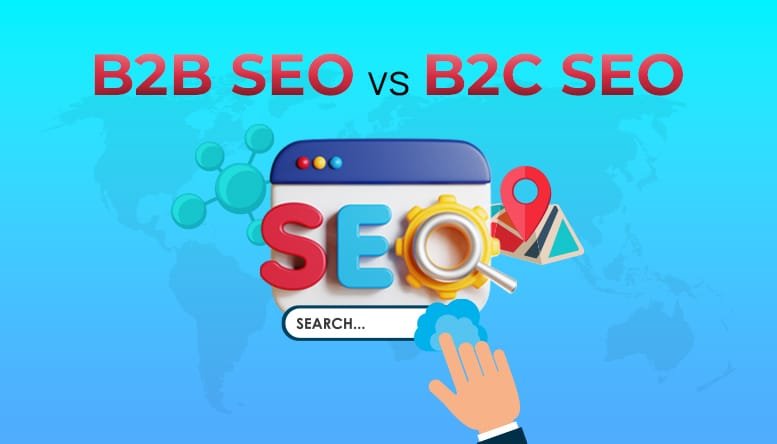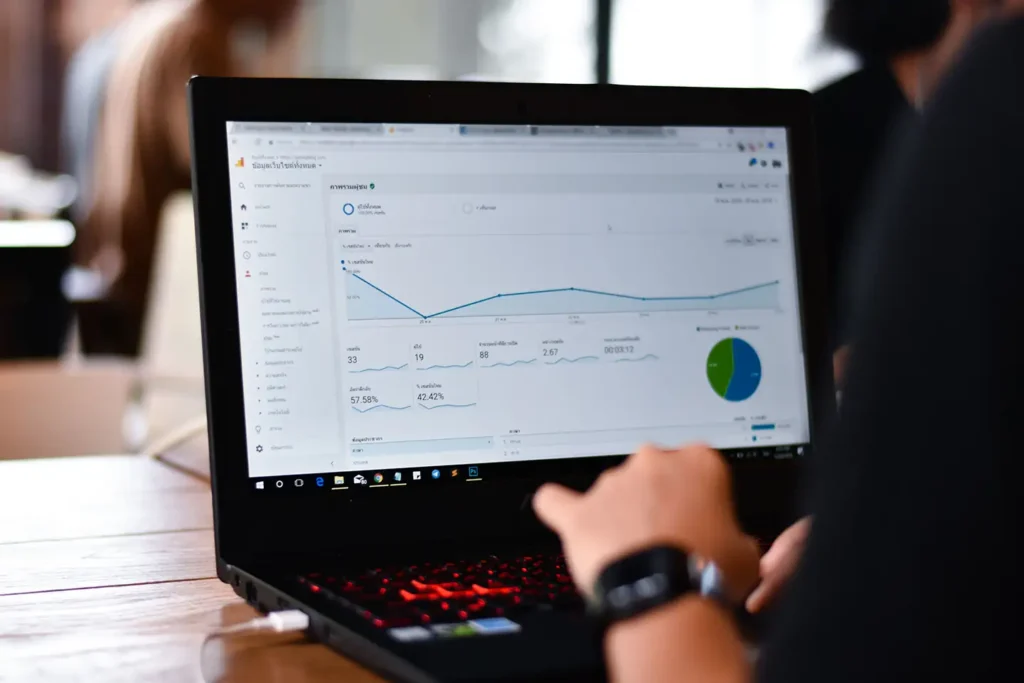In today’s digital world, having a strong online presence is very important for B2B businesses. Search engine optimization (SEO) is key to achieving this. This beginner’s guide will help you understand the basics of B2B SEO. You will learn how Rankstar can assist you in using SEO to improve your visibility, attract potential customers, and reach long-lasting growth through digital marketing.
Understanding B2B SEO: The Basics
B2B SEO is about improving your online presence. Its goal is to help you rank higher in search engine results. This happens when potential customers search for products or services similar to yours. Unlike B2C, which aims at individual buyers, B2B SEO tries to reach business decision-makers. These are the people looking for solutions for their companies.
What is B2B SEO and How Does it Differ from B2C?
B2B SEO is a special kind of search engine optimization. It is designed just for business-to-business companies. The main aim is to attract and connect with businesses that are looking for solutions and information that suits their industry.
A big difference between B2B and B2C SEO is the target audience. B2B SEO aims at reaching important decision-makers in companies. On the other hand, B2C SEO focuses on regular consumers. This difference changes the keywords used, the content created, and the whole SEO strategy.
Why B2B SEO is Essential for Your Business’s Digital Presence?
B2B SEO is important for building a strong online presence and growing your business. When you optimize your website and content with the right keywords, you can improve your position in search engine rankings.
Better online visibility means you get more organic traffic to your website. This is good because potential customers find your business through search engines. They are often looking for solutions that you provide. This helps you reach a targeted audience, which can lead to higher conversion rates. You connect with businesses that are truly interested in your products or services.
Preparing for Your SEO Journey
Starting your B2B SEO journey needs careful planning. You should understand the tools and strategies for success. By having the right resources and setting realistic expectations, you can create a successful SEO experience.
Essential Tools and Resources for B2B SEO Beginners
Many SEO tools and resources are great for beginners. They give you useful data and insights to help your work. Google Search Console is one example. It gives you lots of information about how your website does in search results. You can check keyword rankings, find technical problems, and learn how users reach your site.
In addition to what Google has, a lot of SEO services and platforms offer complete solutions. Tools like SEMrush, Ahrefs, andMoz allow for detailed keyword research, competitor analysis, and backlink tracking. It is a good idea to explore these tools. Try different options to see which ones fit your needs and budget best.
Setting Realistic Goals and Expectations
Setting realistic goals and expectations is very important for a successful SEO journey. SEO can bring great results, but it’s a long-term plan that needs patience and regular effort. Don’t expect to see high rankings or a big jump in traffic overnight.
When you set goals, break them into smaller steps that are easier to reach. Instead of trying to get the top spot for a tough keyword, work on rising in the rankings slowly. Focus on long-tail keywords that have less competition. Be ready to adapt your SEO strategies as search engine algorithms change in the evolving digital landscape.
The Beginner’s Guide to Implementing B2B SEO with Rankstar
Rankstar can help you with B2B SEO. They have a lot of experience and new ideas. This will help your business succeed online. Here are the steps to create a good strategy:
Step 1: Keyword Research for B2B Markets
Effective B2B SEO starts with careful keyword research. Finding the right keywords helps you reach your ideal audience. First, make a list of topics that relate to your industry and the solutions you offer. For example:
- Product/Service Names: [List your main products or services]
- Industry-Specific Terms: [Include common terms from your niche]
- Problem/Solution Keywords: [Focus on keywords that deal with customer issues]
After you have your first list, use keyword research tools like Google Keyword Planner, SEMrush, or Ahrefs. These tools can help you find more options and check search volume and keyword difficulty.
Step 2: On-Page SEO Strategies for B2B Websites
On-page SEO means improving different parts of your website. This helps it become more search engine friendly and enhances the user experience. You should work on your website’s content, meta descriptions, and layout.
Make sure each page on your website has a unique and clear title tag and meta description. These should truly represent what’s on the page. Use headings (like H1, H2, etc.) to clearly organize your content. This helps both search engines and users find their way around your site easily.
Lastly, focus on website optimization to give visitors a good experience. Your website should look good on all devices, like desktops, mobiles, and tablets. It should load quickly and be easy to navigate.
Step 3: Creating Quality B2B Content
Content creation is very important in B2B SEO. Quality content brings in your target audience. It helps you become a leader in your field and gives useful information to potential customers.
When you create content, think about how to give value to your audience. Talk about their pain points, answer their questions, and provide helpful solutions. Use different types of content, like blog posts, case studies, white papers, infographics, and videos to meet various preferences.
By publishing good and engaging content regularly, you make your brand a trusted place for information in your industry.
Step 4: Building B2B Backlinks
Backlinks remain a crucial aspect of SEO, signaling to search engines that your website is a credible and authoritative source of information. Building high-quality backlinks is an ongoing process that requires a strategic approach.
Backlink Building Strategies for B2B |
– Guest blogging on relevant industry websites |
– Creating shareable content that naturally attracts backlinks |
– Engaging in industry forums and online communities |
– Building relationships with other businesses for link exchanges |
Remember, quality over quantity is crucial in link building. Focus on acquiring backlinks from reputable and relevant websites within your niche.
Conclusion
In conclusion, getting good at B2B SEO is very important. It helps boost your business’s online presence and bring in valuable leads. By following Rankstar’s strategies, you can do keyword research, create quality content, and build backlinks. These steps help your business grow steadily in the competitive B2B market. It’s also vital to set realistic goals and use key tools in your SEO journey.
Stay committed and patient while optimizing your B2B website for search engines. This approach will give you good results. Keep learning and adjusting to changes in digital marketing trends to stay ahead.
Frequently Asked Questions
What Are the Best SEO Tools for B2B Companies?
Many SEO tools are out there. Some of the best ones for B2B companies are Google Search Console (which is free), SEMrush, Ahrefs, and Moz (which are paid). These tools help with keyword research, website optimization, daily SEO tasks, and also improving visibility.
How Long Does It Take to See Results from B2B SEO?
B2B SEO is a strategy that works over a long time. It often takes many months before you can see clear changes in your search rankings. Still, there are great benefits of SEO. It can give you more organic traffic and help you find potential customers. So, investing in SEO is a good choice.
Can Social Media Impact My B2B SEO Efforts?
Social media does not directly change search rankings. However, it can help your B2B SEO work in a roundabout way. When you share your content on platforms like LinkedIn, it can boost your brand visibility. This can also attract backlinks to your site. Overall, this improves your online presence and relevance.



